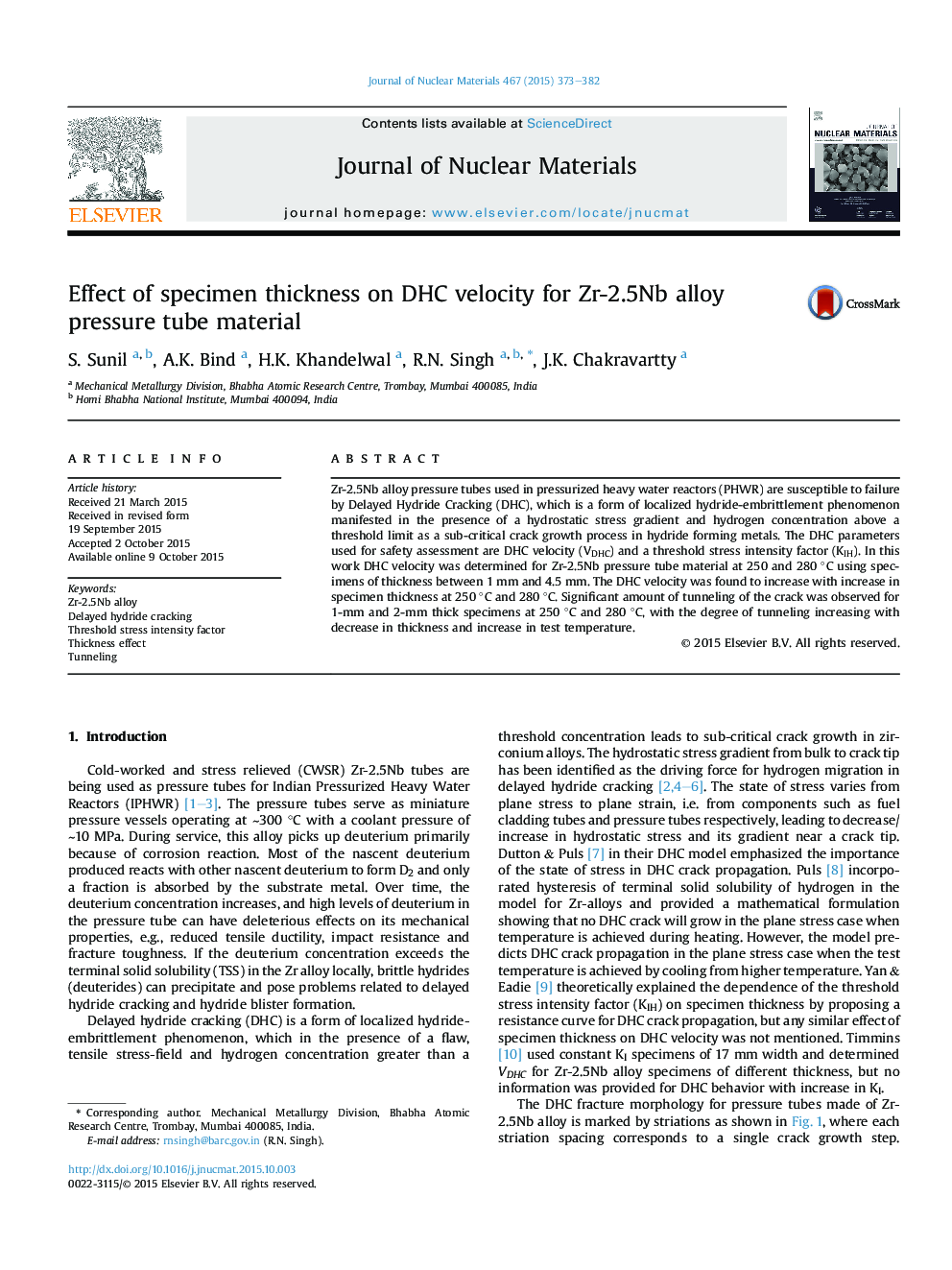| Article ID | Journal | Published Year | Pages | File Type |
|---|---|---|---|---|
| 1564895 | Journal of Nuclear Materials | 2015 | 10 Pages |
Abstract
Zr-2.5Nb alloy pressure tubes used in pressurized heavy water reactors (PHWR) are susceptible to failure by Delayed Hydride Cracking (DHC), which is a form of localized hydride-embrittlement phenomenon manifested in the presence of a hydrostatic stress gradient and hydrogen concentration above a threshold limit as a sub-critical crack growth process in hydride forming metals. The DHC parameters used for safety assessment are DHC velocity (VDHC) and a threshold stress intensity factor (KIH). In this work DHC velocity was determined for Zr-2.5Nb pressure tube material at 250 and 280 °C using specimens of thickness between 1 mm and 4.5 mm. The DHC velocity was found to increase with increase in specimen thickness at 250 °C and 280 °C. Significant amount of tunneling of the crack was observed for 1-mm and 2-mm thick specimens at 250 °C and 280 °C, with the degree of tunneling increasing with decrease in thickness and increase in test temperature.
Keywords
Related Topics
Physical Sciences and Engineering
Energy
Nuclear Energy and Engineering
Authors
S. Sunil, A.K. Bind, H.K. Khandelwal, R.N. Singh, J.K. Chakravartty,
